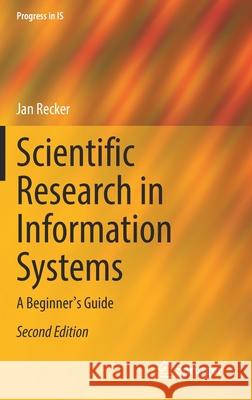Scientific Research in Information Systems: A Beginner's Guide » książka
topmenu
Scientific Research in Information Systems: A Beginner's Guide
ISBN-13: 9783030854355 / Angielski / Twarda / 2021 / 170 str.
Kategorie:
Kategorie BISAC:
Wydawca:
Springer
Seria wydawnicza:
Język:
Angielski
ISBN-13:
9783030854355
Rok wydania:
2021
Wydanie:
2022
Numer serii:
000445205
Ilość stron:
170
Waga:
0.50 kg
Wymiary:
23.39 x 15.6 x 1.42
Oprawa:
Twarda
Wolumenów:
01
Dodatkowe informacje:
Wydanie ilustrowane











